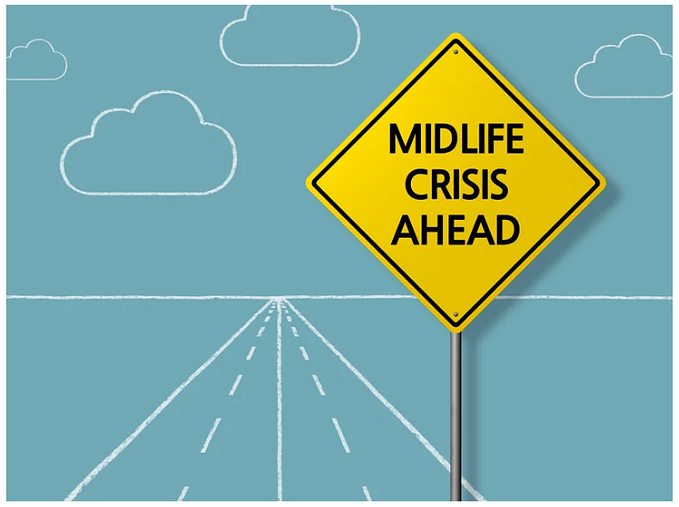Why Most Conversations in Tech About Diversity Are Bullshit — and What to Do About It
Part II: The P-Word
This is part of a series that includes posts introducing this topic, how the business case for diversity prioritizes greed over humanity, and equality for all women or just white women?
In order to have this conversation, we need to approach it in a way that is uncomfortable and honest. In other words, we need to talk about privilege. White privilege, male privilege, heterosexual-cisgender privilege, the works.
To be honest I’ve been wrestling with how to write this since I published my initial post on this topic (which you can read here). How do you begin to talk about something that an entire community either hesitates to/is scared to bring up?
How do we begin to talk about the elephant in the room, when there are people in the room who don’t see or understand how its presence is affecting others in the room with them? Or they don’t even realize that they’re the one who brought the elephant with them?

Here’s some food for thought:
The Antidote to Shame
I want to provide this upfront because if we do not understand, access and embrace this antidote we will shut out the people who need to be the most present in this conversation. Again, as a UX Designer with a counseling background, I understand why most people — especially white people — shut down when they hear the word “privilege”: shame. And this is not to be confused with guilt.
Guilt is “I made a mistake, I made the problem” and shame is “I am the mistake, I am the problem.”
Since shame will always need to be countered with perspective, its antidote is simple: vulnerability and empathy.
I know, I know. “Viv, why does this feel like a therapy session? I thought we were talking about why most conversations in tech about diversity are bullshit?”
We are. We’re just discussing the missing pieces that dehumanizes the conversations in tech about diversity.
We have all experienced the “warm wash of shame.” So if at any point in this conversation, both now and in the future, you start to feel:
- Like you’re being blamed or attacked
- Scared or hesitant to speak out because you don’t want to say or do the wrong thing
- Uncomfortable because you don’t want to admit to or even think about possible ways that you’ve actively or passively contributed to the problem
Take a step back.
Be vulnerable enough to acknowledge what you’re feeling.
Be vulnerable and empathetic enough to place yourself in someone else’s shoes long enough to feel what they’re feeling.
Be human, listen, and be present.
It’s Not Just About White and Gender Privilege
Most conversations about privilege in tech focus on white privilege and male privilege (more like heterosexual-cisgender male privilege) — and rightfully so. The U.S. Equal Employment Opportunity Commission defines the tech sector as “industries that employ a high concentration of employees in science, technology, engineering and mathematics.” According to a recent report:
- Employees in the tech sector are 68.5% white and 64% men
- Executive positions in tech sector are 83.3% white
- Executive positions in tech sector are about 80% men and 20% women

Again, I know that there are many people who reject the reality of “white privilege,” often citing how hard their family worked to get to where they are and other events that stunted financial and academic flourishing.
In responding to one of those arguments, Briana Payton in “Dear Privileged-at-Princeton: You. Are. Privileged. And Meritocracy Is a Myth.” clarifies what privilege is with the following:
“Privilege is not an idea aimed at muting opinion or understating the worth of accomplishments. It is not a stab at personal character, nor is it something for which one needs to apologize. But it is also not a myth. Privilege refers to the very real benefits that society affords certain groups over others, and it is manifested in many ways.”
Yet, not enough people are taking a step back to evaluate their privilege, and therein lies the problem. I’m not just talking about white people and men not acknowledging their privilege, many of us — yes, I’m even including myself in this one — do not realize the types of privilege we are benefiting from.
I’m not going to write another post on white privilege. If you want to read more on white privilege, read this gem. However, I’d like to briefly talk about three types of privilege that often get overlooked:
Heterosexual-Cisgender Privilege
You benefit from absurd amounts of privilege if you find yourself in this bucket. I don’t have to worry about family members and friends distancing themselves from me because I identify as a heterosexual-cisgender woman. Even my experience at the doctor is different; I don’t have to deal with the stares, the ignorant comments, or the innocent questions of a child: “Mommy, is that a boy or a girl?” And even though it might be difficult for me to get my foot in the door as a black woman in tech, it’s even more difficult for a black transgender woman.
Christian Privilege
This may seem odd to include this in here. But as a Christian — especially in America — you’ll never have to worry about not having Christian holidays off. You’ll never see a “Christian ban” in America. You can wear symbols related to your religion, like a cross pendant, without being labeled as suspicious or dangerous. If you’re a politician, you can share openly about being a Christian without losing votes — what if a politician in America was running for office and publicly identified as a devout Muslim?
Socio-Economic Privilege
The main benefit I’d like to highlight is this: you are more likely to get hired by someone who was or is in the same socio-economic class as you. Why? Because we often are drawn to people who are like us. Hiring managers, please keep this in mind as you’re hiring for your company. If you’re employed in tech, keep this in mind as you are recommending possible hires or networking people to individuals who will help them flourish in their career. Get involved in programs that help children who are coming from difficult backgrounds get interested in STEM fields. Invest in lives and expect nothing in return.
“Keep Your Experiences. Give Me Solutions”
I’m going to keep this final point sweet and simple:
Unacknowledged privilege + No empathy = Shallow and quick solutions without acknowledging the humanity within the problem of diversity in the workplace.
In other words, stop going straight to the “quick fix.”
I cannot tell you how many conversations I’ve had with well-meaning people who hear about the experiences of those who are underrepresented in tech and without acknowledging a single thing I’ve said respond with, “Great. Any practices you think I should implement in my workplace to address this?” or “That’s really insightful, what can I do to fix it?” And while many of you may read this and see nothing wrong with that response, the reason why this initial response is more frustrating than helpful is simple:
I don’t feel heard.
If your first call to action is to jump to solutions instead of listen, if your first response is to talk about what you’re doing to address the issue instead of hearing how the issue has impacted others, when we skip acknowledging the difficulty of the conversation, what was said, or how the other person’s experiences was, is, and will continue to affect them because of the tech community’s timidness to talk about privilege, then you’re probably guilty in some way or another of one of the following:
(a) You’re too uncomfortable to dialogue deeper about what was just shared
(b) It’s more comfortable for you to just think about solutions than wrestling with the complexity and pain of this topic
(c) You don’t have the capacity for empathy in that moment/aren’t able to or willing to ask yourself “What would make me feel heard if I were in their shoes?”
(d) You don’t care enough to engage deeper, but you also want to convince others that you care enough to think about solutions.
How do you fight the knee-jerk reaction to “fix it”? Here’s a good step:
Acknowledged privilege + Empathy = Being human enough to care about people outside of your own experiences
Notice how I didn’t mention solutions. That’s because we need to be more people-focused, than problem-focused. When you view everything as a problem, it’s easier to disconnect from the humanity within the problem we are trying to solve.
Hence, why most conversations in the tech community are bullshit.
I want to be clear here:
- I’m not saying that if you benefit from privilege you are the problem.
- I’m not saying that privilege is bad.
- I’m not saying that everyone reading this who benefits from privilege is apathetic and hasn’t done their part.
Here’s what I am saying:
- We can do better.
- You don’t have to wait for boss or management to lead the way (more on that in my next post).
- Check your privilege, ask friends about your blindspots, have the difficult conversations you’ve been nervous to have.
- If you can, leverage your privilege for the sake of others. In other words (and as an example), if you are a white man in tech and have never had this conversation within the workplace or have never used your voice to advocate on behalf of those underrepresented in tech or never used your voice to challenge racist/sexist/xenophobic/homophobic remarks or horrible “diversifying” tactics from management (e.g. bonuses for managers who meet their diversity hiring quotas or having a manager ask you if a prospective candidate seems “black enough”): you are wasting your privilege. Period.
- Read a fucking book. It means that you care enough about your personal growth and the flourishing of others. Start here, here and here — or this one if you’re more into audiobooks. They’re all different, yet I’d consider them to be crucial blocks when building a foundation of context, courage, empathy and change.
In the next post I’ll be doing a deep dive into my second point on my original post “Greed Over Humanity,” why you shouldn’t wait on management to change, and how unacknowledged privilege has been the driving force behind many tech companies wanting to implement diversity.
In the meantime:
- Connect with me here or here or comment below if you want to let me know your thoughts about this post, how you are wrestling through this, stories you’d like to share or questions you’d like to process through. Let’s walk through this together.
- Clap to help others find it more easily.
- Keep fighting the good fight. Whether at work or within yourself. Let’s move closer to human-centered approaches that actually address the issue of diversity in the workplace.
Other posts in this series:
Part I: Why Most Conversations in Tech About Diversity Are Bullshit — and What to Do About It






